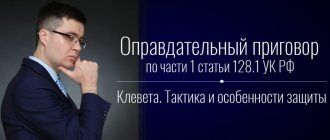1. Production, acquisition, storage, transportation for the purposes of use or sale, as well as the sale of counterfeit payment cards, orders for the transfer of funds, documents or means of payment (except for the cases provided for in Article 186 of this Code), as well as electronic means, electronic information carriers, technical devices, computer programs intended for the unlawful reception, issuance, transfer of funds -
shall be punishable by forced labor for a term of up to five years, or by imprisonment for a term of up to six years, with a fine in the amount of one hundred thousand to three hundred thousand rubles, or in the amount of the wages or other income of the convicted person for a period of one to two years.
2. The same acts committed by an organized group, -
shall be punishable by forced labor for a term of up to five years, or imprisonment for a term of up to seven years, with or without a fine in the amount of up to one million rubles or in the amount of the wages or other income of the convicted person for a period of up to five years.
- Article 186. Production, storage, transportation or sale of counterfeit money or securities
- Article 188. Repealed
Commentary to Art. 187 of the Criminal Code of the Russian Federation
The object of this crime is the established procedure for the issuance and circulation of credit or payment cards, other payment documents that are not securities.
The subject of the crime is counterfeit credit or payment cards, other payment documents that are not securities.
In accordance with clause 1.5 of the Regulations of the Central Bank of the Russian Federation dated December 24, 2004 N 266-P “On the issuance of bank cards and on transactions performed using payment cards,” credit institutions have the right to issue bank cards (including payment and credit):
———————————
Bulletin of the Bank of Russia. 2005. N 17.
a) a payment (debit) card is intended for transactions by its holder within the limits of the amount of funds (spending limit) established by the issuing credit institution, settlements for which are carried out at the expense of the client’s funds in his bank account or a loan provided by the credit institution - by the issuer to the client in accordance with the bank account agreement in the event of insufficient or absence of funds in the bank account (overdraft);
b) a credit card is intended for its holder to carry out transactions, settlements for which are carried out at the expense of funds provided by the issuing credit institution to the client within the established limit in accordance with the terms of the loan agreement.
For the concept and types of securities, see the commentary to Art. 186 of the Criminal Code of the Russian Federation. Other payment documents that are not securities are documents on the basis of which non-cash payments (settlements) are made between individuals and legal entities, for example: payment orders (Article 863 of the Civil Code of the Russian Federation); collection orders (Article 874 of the Civil Code of the Russian Federation); letter of credit (867 Civil Code of the Russian Federation); payment order and payment request (clauses 3.7 and 9.1 of the Regulations of the Central Bank of the Russian Federation of October 3, 2002 N 2-P “On non-cash payments in the Russian Federation”).
———————————
Bulletin of the Bank of Russia. 2002. N 74.
Checks, travel tickets or receipts for payment are not the subject of this crime.
The objective side of the crime is expressed in actions - the production or sale of counterfeit credit or payment cards, other payment documents that are not securities.
The production of counterfeit credit or payment cards or other payment documents that are not securities means their partial or complete forgery (for example, changing details: account number, owner’s signature, amount of money).
Sales is any form of paid or gratuitous transfer of documents to third parties (donation, exchange, sale, etc.).
Using counterfeit credit or debit cards as a means of payment or obtaining cash from an ATM does not constitute sales.
Some qualification issues related to the production, sale and use of counterfeit credit or payment cards, other payment documents that are not securities, are explained in Resolution of the Plenum of the Supreme Court of the Russian Federation dated December 27, 2007 N 51 “On judicial practice in cases of fraud, appropriation and embezzlement."
———————————
Bulletin of the Supreme Court of the Russian Federation. 2008. N 2. P. 8.
In accordance with paragraph 13 of this Resolution, theft of other people's funds through the use of a previously stolen or counterfeit credit (payment) card, if cash is issued through an ATM without the participation of an authorized employee of a credit institution, should be qualified under the relevant part of Art. 158 of the Criminal Code of the Russian Federation.
The theft of other people's funds in bank accounts through the use of a stolen or counterfeit credit or payment card should be classified as fraud only in cases where a person, through deception or abuse of trust, misled an authorized employee of a credit, trade or service organization (for example, in cases where, using a bank card to pay for goods or services in a shopping or service center, a person signs the purchase receipt instead of the legal owner of the card or presents a fake passport in his name).
If a person produces counterfeit bank payment or credit cards for use in order for the same person to commit crimes under Part 3 or 4 of Art. 159 of the Criminal Code of the Russian Federation, the act should be qualified as preparation for fraud.
In situations where a person used a stolen or counterfeit credit or payment card, but due to circumstances beyond his control, he was unable to convert other people’s funds to his own benefit or to the benefit of others, the act, depending on the method of theft, should be qualified as attempted theft or fraud under Part 3 of Art. 30 of the Criminal Code of the Russian Federation and the corresponding part of Art. Art. 158 or 159 of the Criminal Code of the Russian Federation.
The sale of counterfeit credit or payment cards, as well as other payment documents that are not securities, obviously unsuitable for use, constitutes fraud and is subject to qualification under the relevant part of Art. 159 of the Criminal Code of the Russian Federation. If a person has produced for the purpose of selling counterfeit credit or payment cards, as well as other payment documents that are not securities, which are obviously unsuitable for use, but due to circumstances beyond his control he was unable to sell them, the act must be qualified in accordance with Part. 1 tbsp. 30 of the Criminal Code of the Russian Federation as preparation for fraud, if the circumstances of the case indicate that these actions were aimed at committing crimes under Part 3 or 4 of Art. 159 of the Criminal Code of the Russian Federation.
The production of counterfeit credit or payment cards or other payment documents that are not securities is a committed crime if at least one such document is produced for the purpose of subsequent sale, regardless of whether it was successfully sold.
The sale is completed if the person has alienated at least one counterfeit document. The corpus delicti is formal.
The subjective side is characterized by guilt in the form of direct intent. The person is aware that he is manufacturing for the purpose of marketing or selling counterfeit credit or payment cards, other payment documents that are not securities, and wishes to do so.
A mandatory feature of an action is its purpose. The manufacture of items of this crime without the purpose of sale is not criminally punishable.
The general subject of the crime is a sane individual who has reached the age of sixteen.
The qualifying feature is the commission of an act by an organized group (see Part 3 of Article 35 of the Criminal Code of the Russian Federation and the commentary thereto).
Judicial practice under Article 187 of the Criminal Code of the Russian Federation
The appeal ruling of the Judicial Collegium for Criminal Cases of the Supreme Court of the Russian Federation dated August 7, 2018 N 31-APU18-8
rejected the complaint against the decision of the Deputy Prosecutor General of the Russian Federation N.A. Vinnichenko. dated May 25, 2022 on his extradition to face criminal charges for robbery under Part 4 of Art. 187 of the Criminal Code of Ukraine. Having heard the report of judge A.N. Klimov, the explanations of the applicant D.V. Darmokrik. using a video conferencing system, lawyer E.M. Shevchenko, who supported the arguments of the appeal, asking the court decision to be canceled, the opinion of prosecutor M.V. Pirogov, who believed the decision to be left unchanged, Judicial Collegium
Cassation ruling of the Judicial Collegium for Criminal Cases of the Supreme Court of the Russian Federation dated October 18, 2018 N 127-UD18-16
By the verdict of the Judicial Chamber for Criminal Cases of the Court of Appeal of the Autonomous Republic of Crimea dated August 4, 2005, Asanov was convicted under clause 6, 13, part 2, art. 115 of the Criminal Code of Ukraine to 15 years in prison with confiscation of property, under Part 4 of Art. 187 of the Criminal Code of Ukraine to 14 years in prison with confiscation of property, on the basis of Art. of the Criminal Code of Ukraine for a combination of crimes by absorbing a less severe punishment with a more severe one - to 15 years of imprisonment with confiscation of property, in accordance with Art. The Criminal Code of the Russian Federation, together with the sentence of December 17, 1997 - to 18 years in prison with confiscation of property.
Appeal ruling of the Judicial Collegium for Criminal Cases of the Supreme Court of the Russian Federation dated 09/05/2018 N 18-APU18-14
law enforcement agencies of Ukraine for criminal prosecution under Part 3 of Art. 187 of the Criminal Code of Ukraine. Having heard the report of Judge Vedernikova O.N., the speeches of Negmatzyanov V.N. and lawyer E.M. Shevchenko, who supported the arguments of the complaint, the opinion of the prosecutor of the General Prosecutor's Office of the Russian Federation S.V. Kuznetsov. on leaving the decision unchanged, Judicial Collegium
Resolution of the Presidium of the Supreme Court of the Russian Federation dated September 22, 2021 N 88P21
Skorovarov Anatoly Ivanovich, ... was detained on April 28, 2017 in accordance with Art. Art. 91, 92 of the Code of Criminal Procedure of the Russian Federation on suspicion of committing crimes provided for in clauses “a, b”, part 2 of Art. 172, part 2 art. 187 of the Criminal Code of the Russian Federation.
Resolution of the Presidium of the Supreme Court of the Russian Federation dated September 22, 2021 N 89P21
Lyshchik Andrey Alekseevich, ..., was detained on May 29, 2022 in accordance with Art. Art. 91, 92 of the Code of Criminal Procedure of the Russian Federation on suspicion of committing crimes under Part 1 of Art. 187, part 4 art. 159 of the Criminal Code of the Russian Federation.
Resolution of the Presidium of the Supreme Court of the Russian Federation dated October 6, 2021 N 18-P21
Vitaly Vladimirovich Umerenkov, ..., was detained on November 17, 2015 on suspicion of committing crimes under paragraph “b” of Part 2 of Art. 172, part 1 art. 187 of the Criminal Code of the Russian Federation. By the decision of the judge of the Leninsky District Court of Rostov-on-Don dated November 19, 2015, consideration of the issue of choosing a preventive measure in the form of detention for Umerenkova V.V. postponed, the period of his detention was extended by 72 hours, that is, until 20:00 on November 22, 2015.
Resolution of the Presidium of the Supreme Court of the Russian Federation dated October 6, 2021 N 87-P21
Gamidov Shamil Magomedovich, ... was detained on June 3, 2016 in accordance with Art. Art. 91, 92 of the Code of Criminal Procedure of the Russian Federation on suspicion of committing crimes under Part 2 of Art. 187, paragraph “a”, part 2, art. 172 of the Criminal Code of the Russian Federation.
Reporter judge Sevastyanov A.A. Appeal case No. <data taken> Judge <data taken>
APPEAL JUDGMENT IN THE NAME OF THE RUSSIAN FEDERATION
<data taken> Cheboksary
Judicial panel for criminal cases of the Supreme Court of Chuvashia, consisting of: presiding judge Sevastyanov A.A., judges <data taken> and <data taken>, with the secretary of the court session <data taken>, with the participation of a lawyer <data taken> , convicted S., the prosecutor <data taken>, having considered in open court the appeals of the convicted S. and her defense lawyer <data taken> against the verdict <data taken> from <data taken>, by which S. < date> year of birth, native <address> of the Chuvash Republic, citizen of the Russian Federation, residing <address>, with higher education, married, not convicted, convicted under Part 2 of Art. 286 of the Criminal Code of the Russian Federation to punishment in the form of a fine in the amount of <amount> rubles. The punishment imposed on S. in the form of a fine in the amount of <sum> rubles was decided to be considered fulfilled. The preventive measure against S. was left unchanged in the form of a written undertaking not to leave the place and proper behavior until the sentence comes into force. The verdict decides the fate of the material evidence in the case.
Having heard the report of judge Sevastyanov A.A., the speeches of the convicted S. and her defender - lawyer <data taken>, who supported the appeals, the prosecutor <data taken>, who considered the appeals to be left without satisfaction, and the court verdict - without change, judicial panel
installed:
The court of first instance found S. guilty of the fact that she, being a “position”, performing the functions of “data seized” in accordance with Art. Art. <data withdrawn>, being an official, exceeded her official powers, that is, she committed actions that clearly went beyond her powers, which resulted in a significant violation of the rights and legitimate interests of citizens and legally protected interests of society and the state.
So, she, in violation of the requirements of Art. 5 <data withdrawn>, Articles 1 and 14 of the Federal Law of October 6, 2003 No. 131-03 “On the general principles of organizing local self-government in the Russian Federation”, knowing in advance that the financing of the subprogram “Providing housing for young families” of the federal target program “ Housing" for 2011-2015, the purpose of which is to provide state support in solving the housing problem to young families recognized as in need of improved housing conditions; it is carried out at the expense of funds from the local, republican and federal budgets and co-financing is not provided from the personal funds of the participants program by depositing it into the local budget account, <date>, exceeding her official powers, clearly going beyond their limits, deliberately, indicating the lack of budget funds, illegally demanded from <ful.io.>, a participant in the “Housing Provision” subprogram young families" and the holder of the certificate "On the right to receive social benefits for the purchase of residential premises or the construction of an individual residential building" dated <date>, series <number> for the right to receive social benefits in the amount of 378,000 rubles, deposit into the village account settlement 52,488 rubles in the form of a voluntary donation, whereas this amount was included in the amount of the subsidy and should have been paid from the budget of the rural settlement. At the same time, she explained that otherwise he would not be able to take advantage of the social benefits coming from the republican budget. <full name>, fearing negative consequences for himself and family members, deposited the specified amount on <date> of the year into the account <data taken>. These actions of S. entailed a significant violation of the rights and legitimate interests of <f.i.o.> to receive gratuitous support from the local budget and caused him material damage in a significant amount, significantly violated the legally protected interests of society and the state, in the form of undermining authority and discreditation of local government bodies, violation of the main goals and objectives of the subprogram “Providing housing for young families” of the federal target program “Housing” for 2011-2015, approved by Decree of the Government of the Russian Federation of December 17, 2010 No. 1050.
The court qualified S.’s actions under Part 2 of Art. 286 of the Criminal Code of the Russian Federation on the grounds that an official has committed actions that clearly go beyond the scope of his powers and entail a significant violation of the rights and legitimate interests of citizens, legally protected interests of society and the state, committed <officially>.
Disagreeing with the court's verdict, convicted S. and lawyer <data taken> filed appeals.
In the appeal, convicted S. indicates that she did not commit illegal actions and did not exceed her official powers, and also did not cause material harm to <surname> by her actions. Contributing personal funds as a voluntary donation is not prohibited by law; voluntary donations are an official source of budget income. <full.io.> and <full.io.> funds in the amount of 52,488 rubles. deposited into the bank account <data taken> as a voluntary donation. During the trial, it was documented that the budget <data taken> did not have sufficient funds to participate in co-financing the program. This was also confirmed by witness testimony. However, the court of first instance did not take this into account. The arguments that the difference between the planned and actual funds received by the budget, the presence of debt <data taken> under the writ of execution prevented the co-financing of subsidies were also not taken into account by the court when rendering a guilty verdict. Testimony of the victim <f.i.o.>, witnesses <f.i.o.>, <f.i.o.>, <f.i.o.>, <f.i.o. >, <f.i.o.> and <f.i.o.>, the certificate of examination of financial transactions, which the court used as the basis for the verdict, was given an incorrect assessment. This evidence does not confirm her guilt, but rather speaks of her innocence. She asks the court to cancel the verdict, terminate the criminal case and pass an acquittal against her.
The lawyer <data withdrawn> points out in the appeal that the court’s verdict is illegal, the court’s conclusions set out in the verdict do not correspond to the actual circumstances of the case, and the court committed significant violations of the criminal procedure law. During the new consideration of the case, the court ignored the provisions of Part 1 of Art. 50 of the Constitution of the Russian Federation and paragraph 12 of the Resolution of the Plenum of the Supreme Court of the Russian Federation of January 28, 2014 No. 2, the resolution of the Presidium of the Supreme Court of the Chuvash Republic dated July 21, 2022 was incorrectly interpreted. Since, in the cassation procedure, the court's guilty verdict initially rendered in a criminal case was appealed only by convicted S. on the grounds of innocence in committing the act she was charged with, during the new trial of the case, new evidence presented by the prosecution was illegally presented, examined and taken into account. Thus, the situation of convicted S. during the new consideration of the criminal case has worsened. The court unreasonably rejected the arguments about S.’s innocence and the evidence that the defense referred to in support of these arguments. He asks the court to cancel the verdict and issue an acquittal.
In written objections, the state prosecutor and the victim <full name> ask that the court sentence be left unchanged, and the appeals of the convict and the lawyer are not satisfied, considering that there are no grounds provided by law for reviewing the court sentence.
Having checked the arguments of the appeals, having studied the case materials and the evidence available in them, the judicial panel believes that the conviction of the court of first instance is subject to cancellation due to the discrepancy between the court's conclusions and the actual circumstances of the criminal case and an acquittal should be rendered in the case due to the lack of evidence in S.'s actions. crimes.
The appellate court found that <date> of the year, <position> S., performing the functions of <data withdrawn> in accordance with Art. Art. <data taken> of the Charter <data taken>, met with <ful.io.>, who was a participant in the subprogram “Providing housing for young families” and the holder of a certificate “On the right to receive social benefits for the purchase of residential premises or construction individual residential building" dated <date>, series <number>, granting the right to receive social benefits in the amount of 378,000 rubles with financing from the federal, republican and budget funds <data taken>. During the conversation, S., citing the lack of sufficient funds in the amount of 52,488 rubles for co-financing from the local budget, suggested <full name> to deposit this money into the account <data taken> in the form of a voluntary donation, which will make it possible to receive the remaining portion of the subsidy from the federal and republican budgets. Wanting to receive the subsidy as soon as possible, <full name> <date> deposited the specified amount into the account <data taken> as a voluntary donation.
Further, on <date>, the city of S. issued a resolution No. <date> of the year <full name> funds were transferred in the form of a subsidy from the federal budget in the amount of 115,560 rubles and the republican budget in the amount of 209,952 rubles, and on <date> of the year from the budget <data >52,488 rubles were confiscated, which the family <ful.io.> subsequently used to purchase a two-room apartment.
Finding S. guilty of exceeding official powers, the court of first instance, as the main evidence for the prosecution, cited the testimony of the victim <, since S. explained to them that due to the lack of money for co-financing in the budget <data taken>, they cannot be allocated a subsidy from the federal and republican budgets.
Testimony of witness <ful.io.>, who was a <position>, explaining that the amount of 52,488 rubles was to be paid to the family of <ful.io.> from the budget <data taken> and such expenses were provided for budget at the time of issuing the certificate of entitlement to a subsidy <date>, but were revised to 0 by a decision of the Assembly of Deputies <data taken> dated <date>. Funds from the republican and federal budgets for <last name> to the account <data withdrawn> were received accordingly on the <date> year. <date> of the year S., decree No. <number> was issued on the provision of a <full name> subsidy at the expense of budget funds <data taken>. <date> of the year, 52,488 rubles in the form of voluntary donations were transferred to the off-budget account <data taken> from <full name>, which were transferred to him on <date> of the year already as a social payment for the purchase of housing on the basis the said resolution. <date> of the year <surname> a portion of the subsidy was transferred from the federal and republican budgets. Thus, the payment to the family <surname> from the budget <data taken> was made at their own expense and led to budget savings of this amount. If there were no funds for co-financing in the local budget, then the receipt of the subsidy should have been postponed for <year>, subject to the conditions under which the family <surname> would continue to be in line to receive the subsidy.
Testimony of witness <full name> that in case of insufficient funds from <data taken> the certificate for receiving a subsidy was subject to return with the person who received it remaining on the waiting list for the next year.
Witness <full name>, chief accountant <data taken> that S. did not apply for insufficient funds to finance the Housing program. Income received into the account <data taken> could be spent at the discretion of the Assembly of Deputies.
Witness <full name>, at that time <position> that <data withdrawn> no instructions were given to attract voluntary donations to finance subsidies. If there were insufficient funds, they had to make changes to the budget. Funds received as voluntary donations could be spent <data taken> only on the basis of a decision of the Assembly of Deputies <data taken>.
The court also examined written evidence and cited it in the verdict - “data seized”; documents confirming the official position and powers of S.; the right of the individual and his family to receive a subsidy; regulations and financial documents confirming the allocation and transfer of <ful.io.> funds from the federal and republican budget on the deposit of funds <ful.io.> to the account <data taken> and transfer them to him or in the form of social benefits.
Meanwhile, the panel of judges cannot agree with the conclusions of the court of first instance that the examined evidence confirms the charge brought against S. of exceeding her official powers.
The court of first instance found that S., who did not make changes to the budget, did not have the right to receive voluntary donations from <, exceeded her powers, forcing "" to contribute 52,488 rubles to the account <data seized>, and thereby caused him material damage.
At the same time, the court did not take into account that criminal liability for exceeding official powers arises if the guilty person committed actions that he could not have committed under any circumstances, or clearly exceeded his powers, which resulted in significant harm.
In accordance with paragraph 19 of the Resolution of the Plenum of the Supreme Court of the Russian Federation of October 16, 2009 “On judicial practice in cases of abuse of power and abuse of official powers,” criminal liability for exceeding official powers arises in the case when an official commits active actions, clearly beyond the scope of his powers, if the official was aware that he was acting outside the powers vested in him.
In this case, the commission of such criminal actions on the part of S. is not seen.
S.’s proposal to <full name> to deposit personal funds into the account <data taken> does not constitute an abuse of power by her due to the fact that making voluntary donations is provided for by regulations governing budgetary relations. Consequently, she, having explained that the lack of funding from the <data taken> budget would entail the transfer of the entire subsidy to the next year and, having offered to contribute this amount in the form of a donation, was aware that she was acting within the limits of her authority to manage funds and did not introduce < surname> misleading. There was no direct material damage to <name>, since the deposited funds were returned to him in the same month under the guise of a subsidy. In addition, <ful.io.> exercised the right to receive subsidies from the federal and republican budgets and subsequently used them to purchase housing.
Thus, it is impossible to agree with the court’s conclusions that S. caused significant harm to a citizen, society and the state, since her actions did not prevent <surname> from improving his living conditions.
Thus, since the judicial panel does not see the presence of the necessary elements of a crime in S.’s actions, the conviction is subject to cancellation with a new decision, by which S. should be found not guilty and acquitted on the basis of clause 2 of part 1 of Art. 24 Code of Criminal Procedure of the Russian Federation.
Physical evidence - documents must be returned as they belong, a disk with recordings of conversations must be kept in the file.
Based on the above, guided by art. Art. 389.15, 389.19, 389.20, 389.23, 389.28 - 389.30, 389.33 Code of Criminal Procedure of the Russian Federation, judicial board
sentenced:
The sentence <data withdrawn> from <data withdrawn> year against S. is canceled and a new sentence is passed.
S. found not guilty and acquitted of charges of committing a crime under Art. 2. 286 of the Criminal Code of the Russian Federation on the basis of clause 2, part 1, art. 24 of the Code of Criminal Procedure of the Russian Federation, for lack of corpus delicti.
The preventive measure against S. in the form of a recognizance not to leave the place and proper behavior is cancelled.
In accordance with Art. Art. 133-134 of the Code of Criminal Procedure of the Russian Federation recognize S.’s right to rehabilitation.
Physical evidence - documents <data seized> return according to their belonging. A CD-R disk with telephone conversations obtained during operational-search activities should be kept in the criminal file
The appeal verdict can be appealed through the cassation procedure established by Chapter 47.1 of the Code of Criminal Procedure of the Russian Federation.
Presiding Judge










